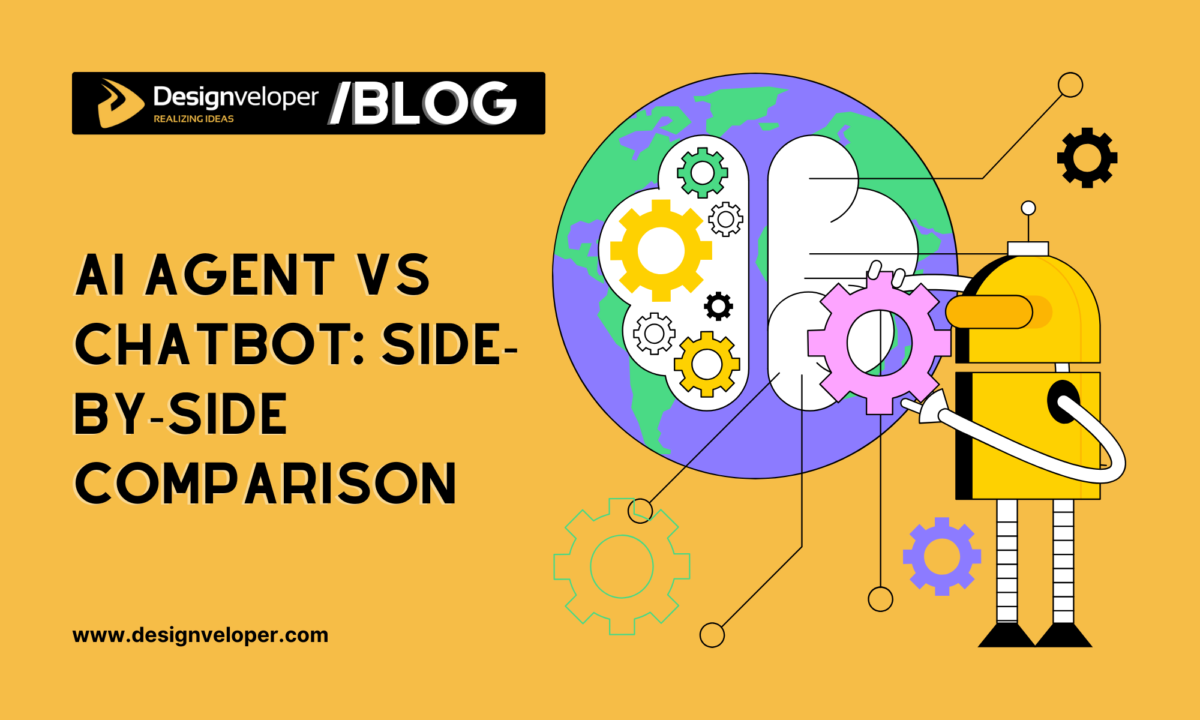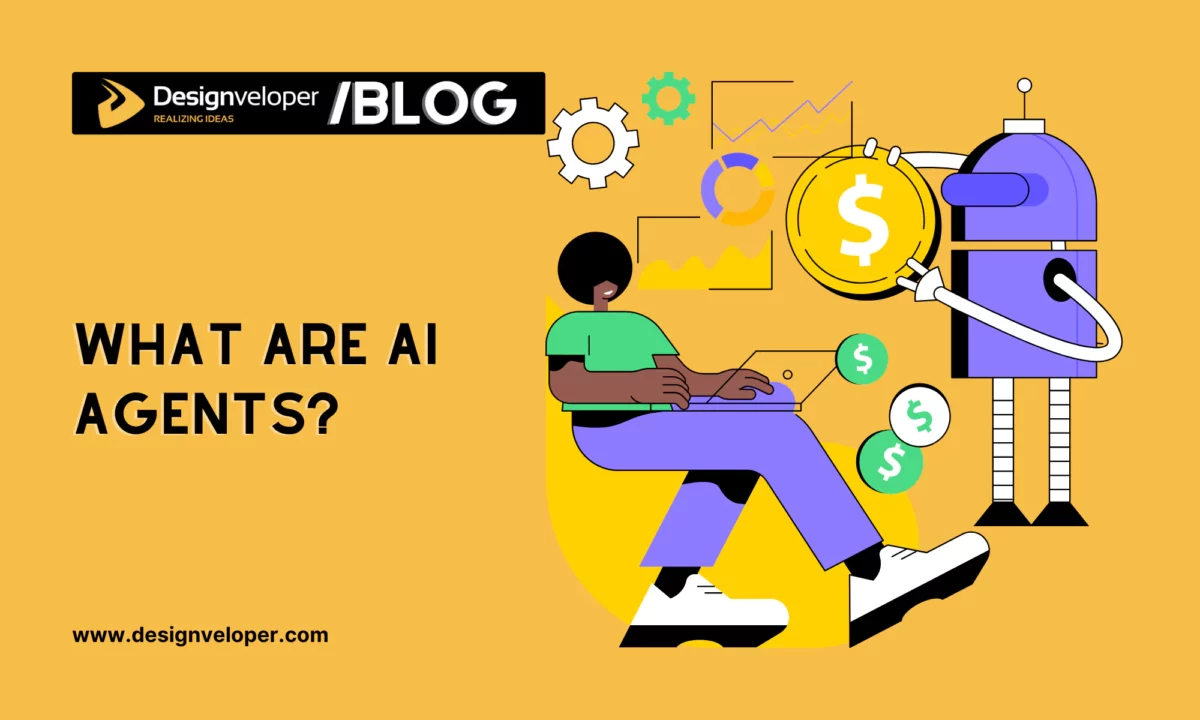Artificial Intelligence in Social Media: The Transformative Potential
September 30, 2024
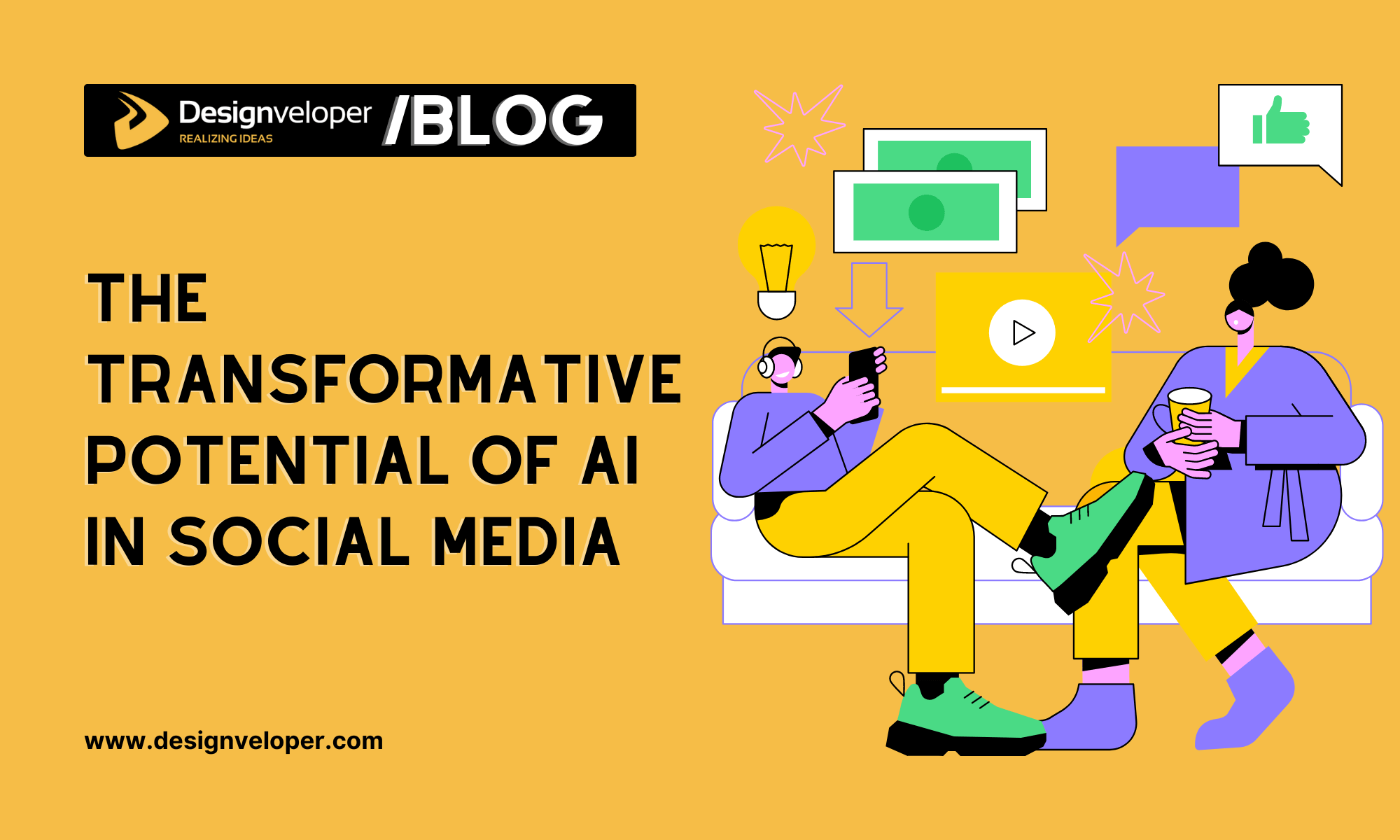

Social media has become an indispensable part of modern life. With approximately 4.9 billion active users in 2023 spending nearly two and a half hours on these platforms every day, social media generates vast troves of data about human behavior and relationships. As data accumulation speeds up, artificial intelligence is becoming the key tool for processing such immense volumes of unstructured information. This technology promises to unveil even more intuitive and personalized social media experiences.
According to projections, the market for AI solutions tailored to social media will balloon to $3.7 billion by 2026 as platforms increasingly integrate intelligent algorithms. As users come to expect more customized and streamlined encounters, AI will shape the very fabric of how people forge connections and communicate through these far-reaching channels.
How Artificial Intelligence is Used in Social Media

Recommended reading: Social Media Strategy for Small Businesses: Complete Guide [2023]
At the core of leading social platforms lie sophisticated smart algorithms that power a range of critical functions. They process massive amounts of user data and derive actionable insights. This helps specialists optimize advertising, content distribution, community governance, and more. Here is how AI is used in social media:
1. Text and visual content creation
Text-to-image generators like DALL-E allow creators to instantly materialize visual concepts from written prompts, accelerating content production. Style transfer algorithms can reinterpret existing images into new aesthetic styles, expanding creative possibilities. Smart tools combining images, video, music, and text enable innovative multimedia content formats.
Furthermore, advancements in AI music technologies such as Mixea empower artists with instant music mastering, taking their creations to professional levels rapidly.
2. Highly personalized ad targeting
By analyzing user behavior, smart technology can pinpoint granular audience segments for specific promotions. These nuanced psychographic and behavioral profiles allow sponsors to serve hyper-targeted ads engineered to convert identified prospects. Technology accounts for factors like persona, lifestyle, interests, location, and real-time context to match promotions to individuals.
3. Automated content moderation
The scale of user-generated content on social sites makes smart moderation a necessity. Platforms leverage natural language processing to identify policy-violating posts and accounts. Image recognition further helps detect prohibited visual material like graphic violence, cyberbullying, nudity, and more. By automatically enforcing community standards, AI protects both users and platforms.
4. Individualized content curation
Social media feeds rely on algorithms that customize displayed posts to align with each user’s preferences. This provides a more engaging, relevant experience. AI analyzes past behavior like shares, comments, views, follows, and more to determine preferences and surface preferred post types and topics.
5. Influencer marketing
AI can identify the positioning, credibility, and audience resonance of influencer candidates to optimize partnerships. Natural language processing gauges the potential success of proposed influencer content based on historical performance data. Intelligent algorithms track and measure influencer campaign reach, engagement, and conversions to calculate attributable ROI.
Recommended reading: 3 Methods of Using Artificial Intelligence in Educational Programs
6. Sentiment & trend analysis
Monitoring societal sentiment and emerging trends is crucial for media and marketing tactics. AI contextualizes the firehose of social chatter to identify shifting attitudes, viral content, breaking issues, and impactful voices. These insights guide strategy across industries.
7. Logo detection
AI visual classifiers automatically scan user-generated visual content to detect brand logo inclusion and enable rights management. Logo detection supports the estimation of earned media value and brand integrity assurance by identifying unauthorized usage. Computer vision aids brand safety by flagging logo appearances in proximity to objectionable content.
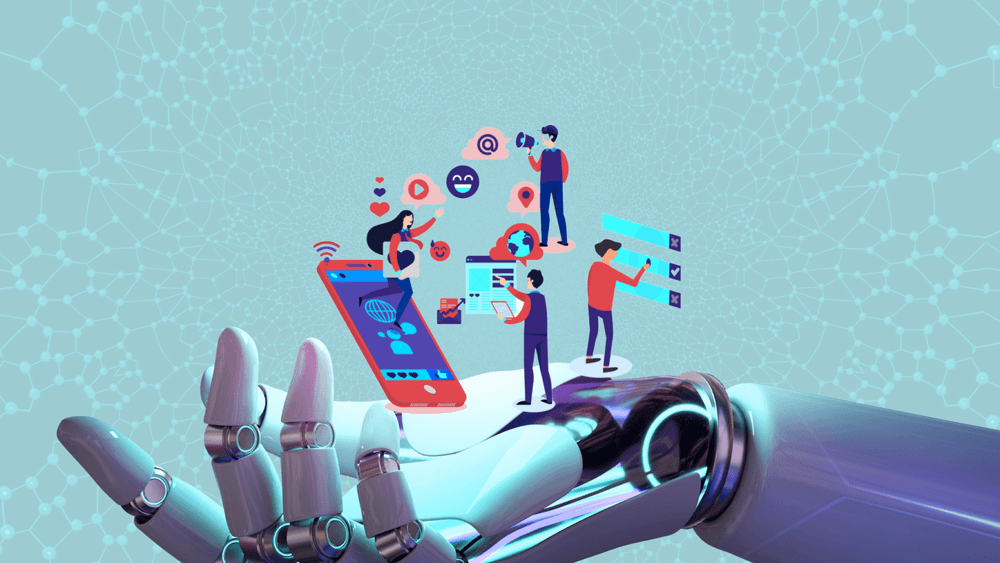
FURTHER READING: |
1. ERP AI Chatbots: Benefits & Pro Advice to Use Effectively |
2. Top 10 Free AI Chatbots & Their Benefits in 2025 |
3. 10 Best AI Voice Agents You Shouldn’t Miss in 2025 |
The 5 Benefits of AI in Social Media
Let’s see in which ways intelligent technology is beneficial for social media.
1. Enhanced user engagement and UX
Thanks to the accurate understanding of user interests and preferences, social media platforms capture more attention and enjoy enhanced engagement. This provides a big boost to user experience.
2. Enhanced ad relevance
Perfectly targeted ads translate to higher click-through and conversion rates for advertisers. For users, they bring more promotions aligned to their needs and interests.
3. Streamlined moderation
The massive scale of social conversation makes manual moderation impractical. AI readily automates the detection of prohibited material.
4. Augmented support
Smart virtual assistants and chatbots enable social platforms to provide 24/7 customer support. Users can get standardized answers to common issues instantly, while more complex tickets get routed to human representatives.
5. Insight generation
By unlocking the wisdom buried within all user-generated content, technology reveals key insights to inform both business and social strategies.
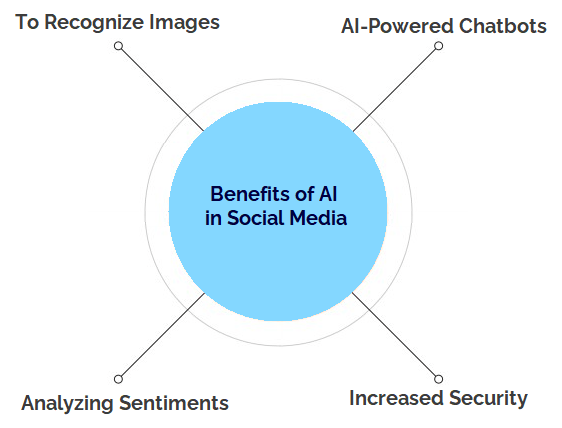
Recommended reading: How to Choose the Right Social Media Platform for Your Business?
Risks of AI in Social Media
Although extremely helpful, intelligent technology comes with certain risks. And professionals implementing it in software solutions and common users must be aware of them when dealing with digital platforms.
1. Perils of bias
Smart systems rely on the data they’re trained on. If that data reflects human biases, those get baked into the algorithms. Flawed AI tools have been shown to struggle with recognizing non-white faces or recommending content that pigeonholes women. Without safeguards in place, AI risks automating discrimination on social platforms.
2. Promoting tribalism
In trying to maximize user engagement, AI recommendations can trap people in echo chambers by continually matching their views. This filtering fuels controversy, radicalizes perspectives further, and rewards outrage. While moderators work to remove harmful extremes, the underlying division remains unaddressed.
3. Enabling scams & manipulation
The programmable nature of smart systems opens the door for coordinated scams, propaganda campaigns, and other influence operations. Cheap deepfakes can falsely depict events or people. Bots and scripts on platforms automate the spread of disinformation, preying on human weaknesses. Platforms attempt to counter such tactics but sophisticated bad actors persist.
4. Undermining accountability
When autonomous AI systems enforce policies, moderate communities, and make judgment calls, accountability disappears. Those unfairly impacted have no recourse or explanation. Rule-based decisions often lack nuance and context. Rather than taking ownership, companies can point to algorithms. This strains basic notions of ethical governance.
In amplifying both the best and worst of humanity, AI on social media remains a double-edged sword. With vigilance and care, we can hopefully avert the most dangerous outcomes.

Tips for Safely Using AI in Social Media
If you want to unlock the immense potential of AI in social media without harming anyone, take the following tips as guidance:
1. Choosing the right tools
Evaluate AI vendors carefully, considering data privacy, transparency, ethical design, and their overall reputation. Prioritize tools with strong security measures and accountability.
2. Setting clear boundaries
Define clear guidelines and limitations for using intelligent technology to protect your brand. Establish criteria for human review of AI outputs and be cautious with new, untested technologies.
3. Regular audits for fairness
Conduct regular audits of smart systems to uncover biases and prevent discriminatory impacts. Seek external auditors for unbiased perspectives and transparently communicate audit results.
4. Empowering user control
Provide users with visibility into how AI affects their experiences. Offer features like preference managers and transparency reports. Allow users to customize algorithmic recommendations and ad exposures and make opting out or deleting data easy.
5. Promoting a responsible AI culture
Foster internal awareness of ethical AI practices through education and training. Encourage employees to question assumptions, raise concerns, and share accountability for outcomes. Let responsible principles guide decisions at all levels.
By adopting a vigilant, human-centric approach to technology, brands can harness its benefits while promoting fairness, understanding, and informed choices in their social media presence. The key lies in embracing compassionate innovation.
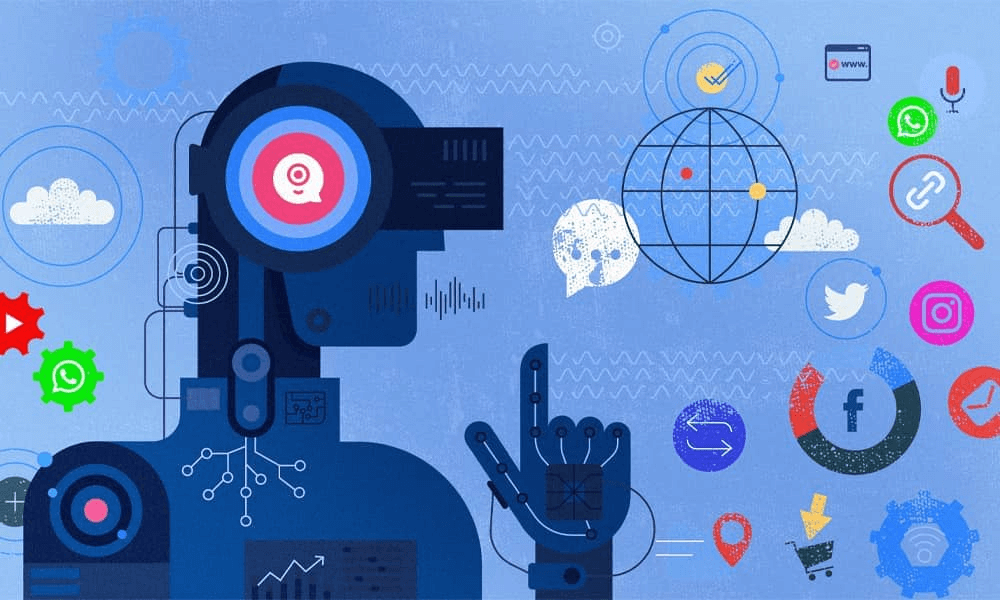
The Future of AI in Social Media
Artificial intelligence in social media is evolving rapidly. By 2026 the AI market in social media is projected to grow to $3.714.89 million at a rate of 28.77%. An increase in social media engagement alongside the urgency for AI analysis drives this growth.
AI solutions better the landscape of social media by improving aspects of ad management and content creation. Generative AI tools such as ChatGPT and DALL-E are changing the ways in which we create and generate text and visual content. By leveraging machine learning algorithms these tools produce singular content that invigorates engagement on social media.
AI capabilities are vital for content moderation since they enable platforms to promptly recognize and take down hazardous content. It creates a protected virtual atmosphere for users. By personalizing content suggestions through AI algorithms user engagement increases. Using AI for personalization greatly boosts interaction among users on social networks.
In addition to this fact AI enhances social media advertising to enable companies to effectively reach their target audience resulting in greater conversion rates and improved returns. Using AI can allow ad management tools to evaluate user information to improve ad positioning and timing.
The incorporation of AI into social media brings challenges alongside. Privacy challenges along with algorithmic biases create important problems. AI systems accumulate large amounts of user information prompting privacy questions and biased algorithms might unfairly steer content sharing.
Despite these challenges, the future of artificial intelligence in social media looks promising. Online interactions will be affected by AI which will enhance efficiency and individuality in social media platforms. As AI advances further its role in social media will expand.
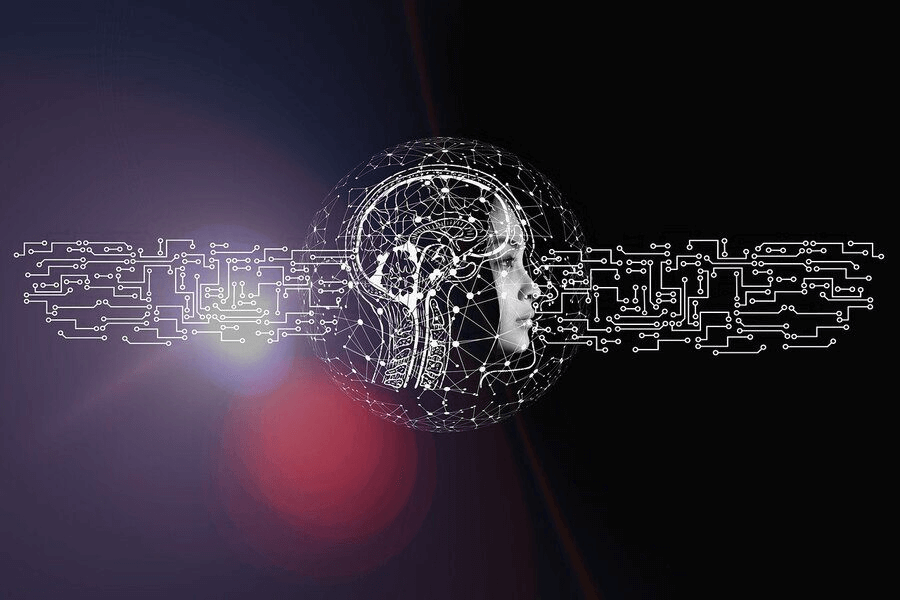
Designveloper & Artificial Intelligence in Social Media
Artificial intelligence in social media is transforming how businesses engage with their audience. New data reveals that 69.1% of marketers include AI in their plans, underscoring the increasing dependence on AI for improving marketing effectiveness.
Streamlining Content Creation
AI instruments including ChatGPT and Microsoft Copilot streamline process of creating content. These tools support the summarization of documents and the explanation of concepts in order for our writers to produce content of exceptional quality quickly.
Improving Data Analysis
In data analysis AI offers a vital function. Businesses gain clarity about their audience with the examination of extensive datasets. By analyzing user interactions significantly. AI can reveal trends and relationships that assist firms in taking evidence-based actions. AI enables Designveloper to study social media data for clients resulting in more productive marketing tactics.
Ensuring Data Security
When deploying AI for social media platforms; data security becomes an important concern. Integrated AI capabilities along with solid data security features are available from Atlassian. A financial hurdle can exist for certain organizations. Designveloper delivers affordable AI tools that ensure data protection and attract a larger clientele.
Conclusion
As intelligent technology transforms social media landscapes, brands have an obligation to steer these technologies toward empowerment rather than exploitation. By working closely with IT providers offering ethical AI development services, establishing strong data governance, allowing user customization, and enabling human oversight, companies can nurture responsible innovation. With diligence and compassion as our guides, we can co-create social spaces aligned to the higher aspirations of humankind – spaces that transcend division and expand our common humanity. The future remains unwritten, but through prudent collaboration, we can author the next great chapter in our shared story.






Read more topics















































